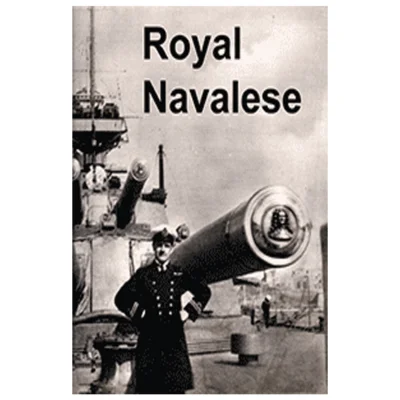ROMMEL: The Trail of the Fox is a new of the world’s best-known Rommel biography. Field Marshal Rommel has been described as one of the ten greatest military commanders of all time. This is the first biography of this charismatic leader to rely almost entirely on the original records of the period.
David Irving’s exhaustive research led him to a dusty personnel file on the young Rommel – applying and being turned down – for army commissions; the long lost Rommel Diaries, dictated day by day to an army corporal and covering the two momentous years of his triumphs and defeats in North Africa, and numerous other private papers.
From them emerges the picture of both the outstanding soldier and the military commander, whose tactical genius, brilliance on the battlefield, and extraordinary exploits captured the world, and of the private man – Rommel as a husband and father.
494 pages.















[email protected] –
I discovered Mr David Irving back in the 1980’s when i read his 2 volume “Hitlers War”. With that reading I was hooked. I went on to find “Destruction of Dresden” which helped me appreciate more what had happened there while an exchange student and had a chance to visit there. Then I tackled Rommel. What a book. Mr Irving to his credit gives you the good and the not so good, there is no holding back or sugar coating. It is straight and well articulated. My 13 year old son is now reading it. Last November 2016 while in an airport bookstore I found a single copy of Daniel Allen Butler’s book, “FIELD MARSHAL-The Life and Death of Erwin Rommel”. the author gives credit to Mr Irving for helping him and supplying him with information and I honestly found it a good read. BUT I would start with Mr Irving’s book. It is a great read it has a “you are there ” flavor to it . Highly recommend it.
[email protected] –
David Irving’s The Trail of the Fox is the best work on Rommel ever written. I wish I had known about this work decades ago, and had gained this perspective and this knowledge earlier. The circumstances around Rommel’s involvement with the attempt on Hitler’s life, which is the most speculated aspect of Rommel’s life, and how the Gestapo came to believe Rommel was involved, have not been made clear in most of the historiography on Rommel. Irving pieces together what really happened most effectively.
There are so many strengths of this book, of which the greatest is probably the fact Irving had access to Rommel’s dairy and many of his letters, which he got permission from the family to view. Other items he found in collections in the United States, England, and Germany. Since he worked on this in the 1970’s he also was able to interview a number of German officers who were still alive that knew and served with Rommel. The whole work is the way historical research should be done; totally reliant on primary source material, and ignores secondary sources that often use conjecture or just repeat incorrect narratives from earlier books. Every source is from people who fought the war; Germans, Italians, British, French and American officers who were in these campaigns and had either first hand observation of Rommel or were major participants like Eisenhower, Churchill, Goebbels, etc.
Most writers who have broached the subject of Rommel typically paint a picture of a genius who only lost in North Africa in the end due to meddling by Hitler and being let down by his Italian allies. These were factors, but Irving shows that some of the problems Rommel encountered were to some degree of his own making, and came back to bite him at crucial points. Rommel had many great strength’s but, there were aspects of his personality that were a problem at times, and Irving illustrates some of these. The true Rommel, as Irving shows was magnificent when able to finesse a victory and build on it, but his weakness was that his outlook and confidence took a decided downturn when he was faced with a defeat like El Alamein.
Rommel rose quickly in the Wehrmacht because he had worked closely with Hitler early on, and he used this report with Germany’s Commander In Chief to get command of a tank division for the invasion of France. He was an ambitions man, who wanted to do great things, and he had no problem asking for what he wanted. Rommel had been an infantryman, and had no experience with tanks, but he took to the weapon like a natural, and applied his mastery of deception, as well as his headstrong drive to adventure to push his units on to lightning speed accomplishment in France. One of this most effective tactics was to fool many French units into surrender. Once he crossed the Meuse and broke through the French at Sedan, he drove his units like mad deep into the rear areas and caught many French units in a mindset of disbelief German troops could be on top of them. Hitler was duly impressed with Rommel in France, and this performance got him the Afrika Korps.
In Africa, Rommel took the mindset of aggressive movement to a tempo the British could not cope with immediately. In the beginning he also worked quite well with the Italians, and their troops came to love Rommel as much as the German soldiers did. His victories came in quick succession as he pushed the Afrika Corps hard, despite the logistics problems he faced. His legend grew, was soon Hitler’s favorite, and equally respected by his opponents. Then he hit his first wall at Tobruk, as his troops reached tactical culmination, and what forces he could use to break into the perimeter were not strong enough, nor supported well enough to break in. All the commanders advised him against it, but he tried to force it anyway, and was repulsed. Months later as the new English commander tried to turn the tables on Rommel, Rommel’s second chance to take Tobruk offered itself. After breaking up the British counter offensive, Rommel took Tobruk, and reached the pinnacle of his career.
Again he tried to finesse another conquest and take Egypt, as Irving gives the reader a full account of some of the strategic ideas Rommel had at this juncture, which are thoroughly fascinating. Rommel is of course pushed back, and this begins the downturn in his attitude and outlook. Irving brings many sources to bear in describing the real Rommel. Real observations and opinions of the great minds of the war, thoughts from both sides on what was happening to him.
Rommel was a changed man after Africa, but Hitler still wanted him to come back in some way, and put him charge of tactical control of the French coastline in preparation for the Allied invasion. When it came, Rommel showed all of his former zeal and complete dedication to soldering on and trying to stem the tide. Irving shows that his work in holding the Allies in their bridgehead as long as he did was quite a feat. Of w
[email protected] –
David Irving’s The Trail of the Fox is the best work on Rommel ever written. I wish I had known about this work decades ago, and had gained this perspective and this knowledge earlier. The circumstances around Rommel’s involvement with the attempt on Hitler’s life, which is the most speculated aspect of Rommel’s life, and how the Gestapo came to believe Rommel was involved, have not been made clear in most of the historiography on Rommel. Irving pieces together what really happened most effectively.
There are so many strengths of this book, of which the greatest is probably the fact Irving had access to Rommel’s dairy and many of his letters, which he got permission from the family to view. Other items he found in collections in the United States, England, and Germany. Since he worked on this in the 1970’s he also was able to interview a number of German officers who were still alive that knew and served with Rommel. The whole work is the way historical research should be done; totally reliant on primary source material, and ignores secondary sources that often use conjecture or just repeat incorrect narratives from earlier books. Every source is from people who fought the war; Germans, Italians, British, French and American officers who were in these campaigns and had either first hand observation of Rommel or were major participants like Eisenhower, Churchill, Goebbels, etc.
Most writers who have broached the subject of Rommel typically paint a picture of a genius who only lost in North Africa in the end due to meddling by Hitler and being let down by his Italian allies. These were factors, but Irving shows that some of the problems Rommel encountered were to some degree of his own making, and came back to bite him at crucial points. Rommel had many great strength’s but, there were aspects of his personality that were a problem at times, and Irving illustrates some of these. The true Rommel, as Irving shows was magnificent when able to finesse a victory and build on it, but his weakness was that his outlook and confidence took a decided downturn when he was faced with a defeat like El Alamein.
Rommel rose quickly in the Wehrmacht because he had worked closely with Hitler early on, and he used this report with Germany’s Commander In Chief to get command of a tank division for the invasion of France. He was an ambitions man, who wanted to great things, and he had no problem asking for what he wanted. Rommel had been an infantryman, and had no experience with tanks, but he took to the weapon like a natural, and applied his mastery of deception, as well as his headstrong drive to adventure to push his units on to lightning speed accomplishment in France. One of this most effective tactics was to fool many French units into surrender. Once he crossed the Meuse and broke through the French at Sedan, he drove his units like mad deep into the rear areas and caught many French units in a mindset of disbelief German troops could be on top of them. Hitler was duly impressed with Rommel in France, and this performance got him the Afrika Korps.
In Africa, Rommel took the mindset of aggressive movement to a tempo the British could not cope with immediately. In the beginning he also worked quite well with the Italians, and their troops came to love Rommel as much as the German soldiers did. His victories came in quick succession as he pushed the Afrika Corps hard, despite the logistics problems he faced. His legend grew, was soon Hitler’s favorite, and equally respected by his opponents. Then he hit his first wall at Tobruk, as his troops reached tactical culmination, and what forces he could use to break into the perimeter were not strong enough, nor supported well enough to break in. All the commanders advised him against it, but he tried to force it anyway, and was repulsed. Months later as the new English commander tried to turn the tables on Rommel, Rommel’s second chance to take Tobruk offered itself. After breaking up the British counter offensive, Rommel took Tobruk, and reached the pinnacle of his career.
Again he tried to finesse another conquest and take Egypt, as Irving gives the reader a full account of some of the strategic ideas Rommel had at this juncture, which are thoroughly fascinating. Rommel is of course pushed back, and this begins the downturn in his attitude and outlook. Irving brings many sources to bear in describing the real Rommel. Real observations and opinions of the great minds of the war, thoughts from both sides on what was happening to him.
Rommel was a changed man after Africa, but Hitler still wanted him to come back in some way, and put him charge of tactical control of the French coastline in preparation for the Allied invasion. When it came, Rommel showed all of his former zeal and complete dedication to soldering on and trying to stem the tide. Irving shows that his work in holding the Allies in their bridgehead as long as he did was quite a feat. Of whic
[email protected] –
Phenomenal book! Very enjoyable read. From the beginning of Rommel’s military career to his tragic end this book has it covered. Absolutely, mind blowing how the decision to change his chief of staff (Gause), due to his wife’s dislike of Gause’s wife, ultimately had so many repercussions in Normandy and ended up costing Rommel his life. Simply a crime that a traitor like Speidel would get to walk free while Rommel met his unexpected end. Highly recommended!
Stephen O’Connell (verified owner) –
“Rommel: The Trail of the Fox” is an excellent book that covers Erwin Rommel’s military career, as well as his private life, through to his death in 1944. David Irving’s extensive research and interviews with sources providing first hand accounts make this a biography that is interesting and very informative.